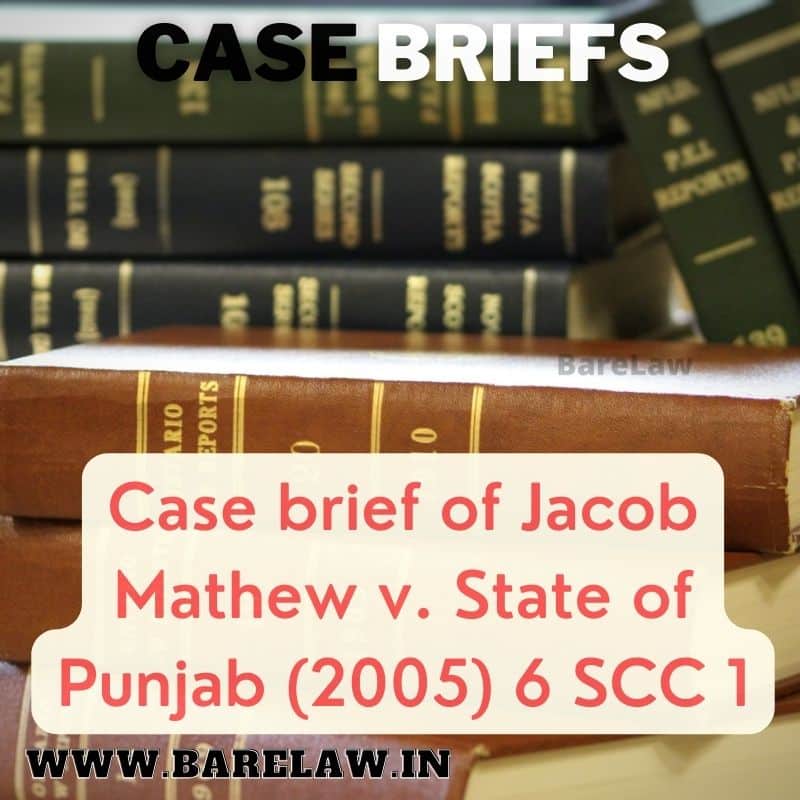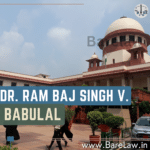
Facts: The case of Jacob Mathew v. State of Punjab (2005) dealt with the issue of whether a doctor can be held liable for not informing a patient of all material risks involved in a medical procedure.
Issue: The main issue was whether a doctor has a legal obligation to inform a patient of all material risks involved in a medical procedure.
Contention: The petitioner argued that a doctor has a legal obligation to inform a patient of all material risks involved in a medical procedure, while the state contended that there was no such obligation.
Observation: The Supreme Court of India observed that a doctor has a legal obligation to inform a patient of all material risks involved in a medical procedure, and that the patient has the right to be fully informed so that they can make an informed decision.
Decision: The Supreme Court of India held that a doctor must inform a patient of all material risks involved in a medical procedure and that failure to do so amounts to medical negligence. This case established the principle of informed consent in Indian medical law.
Detailed Analysis of the case
The case of Jacob Mathew v. State of Punjab (2005) 6 SCC 1, was a decision of the Supreme Court of India that dealt with the issue of medical negligence.
The background of the case was that the appellant, Jacob Mathew, was a doctor who was charged with medical negligence in treating a patient. The patient, who was suffering from a leg injury, was admitted to the hospital where the appellant was practicing. The patient’s condition worsened and he was eventually referred to another hospital, where he died. The patient’s family filed a complaint against the appellant alleging medical negligence.
The main issue before the Supreme Court of India was whether the appellant was guilty of medical negligence. The Supreme Court of India held that the appellant was guilty of medical negligence.
The Supreme Court of India noted that the standard of care expected of a doctor is that of a reasonable man with ordinary skill in the medical profession. The Supreme Court of India held that the appellant had failed to provide the standard of care expected of a doctor and that this failure was the proximate cause of the patient’s death.
The case of Jacob Mathew v. State of Punjab (2005) 6 SCC 1, is significant because it established the principle that doctors are expected to provide a standard of care that is equivalent to that of a reasonable man with ordinary skill in the medical profession. The case also established that if a doctor fails to provide the standard of care expected of him, he may be guilty of medical negligence.
In conclusion, the case of Jacob Mathew v. State of Punjab (2005) 6 SCC 1, was a decision of the Supreme Court of India that dealt with the issue of medical negligence. The case established the principle that doctors are expected to provide a standard of care that is equivalent to that of a reasonable man with ordinary skill in the medical profession. The case highlights the importance of ensuring that doctors provide the standard of care expected of them in treating their patients.
Major Observation of the Court
The major observation of the court in Jacob Mathew v. State of Punjab (2005) was that a doctor has a legal obligation to inform a patient of all material risks involved in a medical procedure. This observation established the principle of informed consent in Indian medical law, which means that a patient has the right to be fully informed about the risks involved in a medical procedure so that they can make an informed decision. The court held that failure to inform a patient of all material risks involved in a medical procedure amounts to medical negligence.
Also Read – https://indiankanoon.org/doc/871062/





